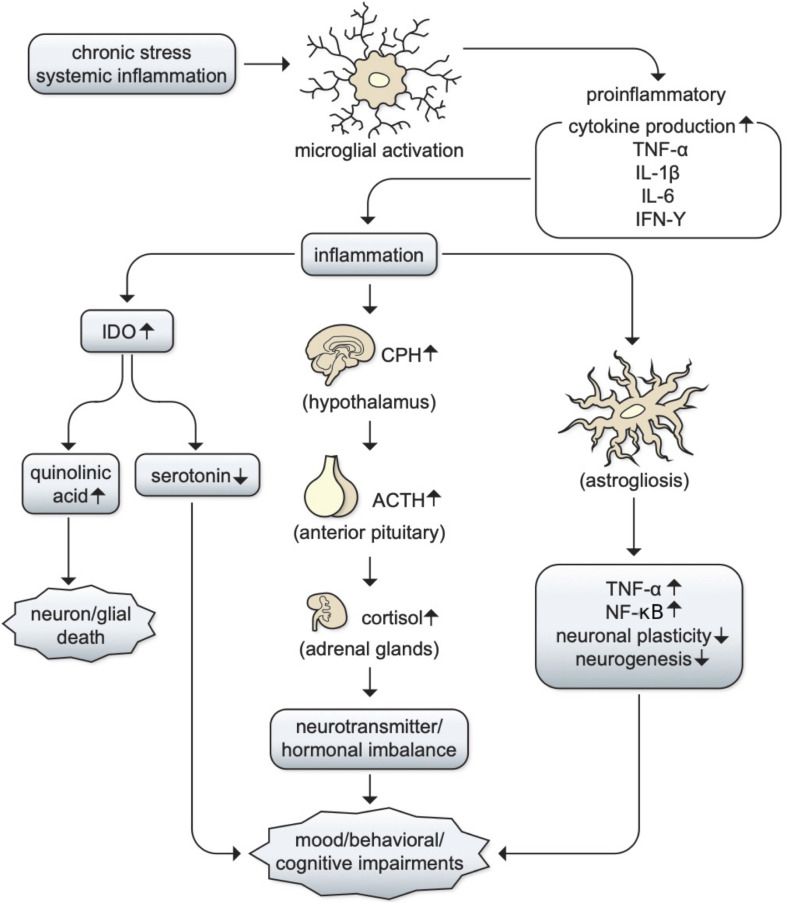FIGURE 3.
The potential role of inflammation in MDD. The relationships between inflammation and depression are still unclear, but there are two main mechanisms through which inflammation can contribute to depression: chronic stress or systemic inflammation can lead to microglial activation, which can lead to the production of proinflammatory cytokines such as TNF-α, IL-1β, IL-6, and IFN-γ. This leads to the propagation of inflammatory pathways, which can (1) activate the hypothalamic–pituitary adrenal (HPA) axis to produce cortisol and cause an imbalance in serotonin, norepinephrine, and epinephrine; (2) increase in the production of indoleamine-2,3-dioxygenase (IDO), resulting in serotonin depletion and increased quinolinic acid and contributing to cell death (Kopschina Feltes et al., 2017). It is likely that both pathways could underlie MDD progression and neurotransmitter imbalances that lead to various comorbid symptoms such as mood, behavioral, or cognitive impairments such as sleep, concentration, and cognition (Mössner et al., 1998; Donegan et al., 2014; Watkins et al., 2014).

